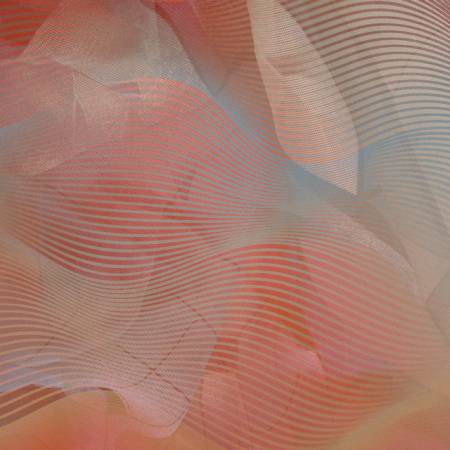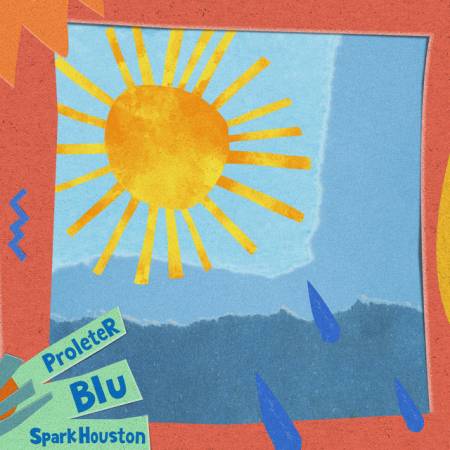As you know, former Portico Quartet have evolved in a three-piece electro-oriented band under the moniker of Portico. Now signed on Ninja Tune, they have delivered a beautiful LP entitled Living Fields.
The band stepped by Paris few weeks ago, Sabrina and I had the opportunity to interview them for our university music blog, Le Gorille. Here is what Jack Willie, Milo Fitzpatrick and Duncan Bellamy had to say to us.
Noémie: As to introduce the band, we're going to ask you few random questions: If you could meet an artist, who would that be ?
Jack: Dead or alive, can I have people who passed away? I would like to meet John Coltrane I think. Undoubtly actually.
Duncan: Michael Jackson. Yeah it would be interesting.
Milo: I don’t know, I’m not sure I would like to meet them because they could shatter your perception. You might love their music and then you might meet them and they might be dicks, then you just don’t like them anymore. It’s dangerous. So I’d like to meet someone really average. Bryan Adams. – laughs- Cause we’d just hang out.
Sabrina: Which music unites you as a band?
D: Maybe Oneohtrix Point Never. He’s American. Synthesized stuff.
J: An album we all bonded over when we first met maybe was Music for 18 Musicians by a guy called Steve Reich
N: Which album makes you want to stay at home?
D: When I’m in the bath, I listen to solo-piano, like Chilli Gonzalez.
J: i'm listening to gockle prandit
N: What do you listen to on the road?
D: Techno. I listen to techno really early in the morning, i've done it quite a lot
J: i listen to mixes
M: Bryan Adams
S: What did you listen to when you were teenagers ?
D: Nevermind by Nirvana I think.
J: I really liked Moby when I was a teenager
Everyone looking at Milo: Bryan Adams ?
M: -Laugh- I would listen to Queen
N: Moving on to more serious questions:
Since 2012 You have indulged a major change of style, going from jazz towards more electro music so when I listened to Living Fields I still felt this jazz influence. How would you define your music genre nowadays and how did your jazz fanbase react to your shift from jazz?
D: I would say experimental pop music. And i think some of the fans didn't like it at all. Some people reacted quite badly, but on the whole, people were quite positive i think. And people who were expecting to hear more instrumental music they realized it has changed.
S: Do you think it's because Pop is seen as a "bad" music genre ?
D: Yeah, maybe, or maybe they're just not interested you know! The music we released is kind of like a different band and I understand they're disappointed.
N: And then again because you've changed your name, maybe some are not even aware that you are still around.
D: We tried to communicate it with a press release but there's only so much you can do. I think some fans of the band followed us from the first album, and even between the first and the third album it's very different so maybe they're kind of used to the change. So i think there's probably quite a lot of people who are happy to follow us on our journey.
S: What about your label, Ninja Tune: to what extent did it accompany this change ?
D: Well we didn't make a new album for Ninja Tunes but it did chime very well with what we wanted to do now. I think moving to a new label was a good way as well to make a distinction perhaps. Also, I think they are in a much better position to help us release our music and get something out of it.
N: Ninja Tune often blends electronica with jazz-infused sounds, so it seems coherent as a choice. What led you to move to this label, though?
M: yeah i mean they were interested in the band before we made this change and then we talked to them saying we were thinking about making this big change and they were like « okay, what change ?». So we had to guide them through it. And there was a leap of faith on both sides, they had to trust in us and we had to trust in them. So you know, it was a difficult point to pick up a band when you know they're going to change but you don't know what they're going to write. But they were really good because they trusted us and believed we could make something good.
S: For Living Fields you have changed your method of composition. Was this change something that appeared as necessary as you are no longer are a quartet ?
J: I think yeah, the change in process was really important. I mean, we did the last album the three of us and then another member [Keir Vine - ndrl] came in to develop the parts that were studio and live. For this album we were still writing - the three of us - but we changed the process, more because we wanted to make something really new and wanted to change the sound. It was also a way to do more stuff based around production and the computer. It took us a long time to do that. Actually it took about a year of finding out a process of work for all of us and then also finding the themes as well, and having that kind of collaborative process. And it did take a while to find it, but once we found it, we worked reasonably quickly.
N: I've read in your Ninja Tune bio that you had to score an exhibition about space and architecture for Royal Albert Museum. Did that influence in any ways the way you made Living Fields? - perhaps in the choice of Jono McCleery because his music is said to encapture past present and future, and i felt quite the same way with Living Fields.
D: Yeah i think that. Maybe not in the choice of Jono McCleery, whom we were already working with. But certainly making music for the exhibition was really good. It gave us an injection of ideas because we had to suddenly create. We had taken a long time to make songs and then for this exhibition we just wrote some new music really quickly - in like a day. But I think it was really good because we got a lot of ideas very quickly. There's something about when you write in a short space of time: it can be quite productive. We ended up using a lot of the textures and the sounds from that piece in Living Fields
S: You also watched this Chilean documentary Nostalgia For The Light by Patricio Guzman, that influenced this album a lot. Maybe could you sum it up for the people who haven't saw it? How did it influenced your way of composing?
M: We used that documentary because we all watched it, we all shared it and it was resonating with some of the same themes and concepts that we were interested in already. We thought this would be a great kind of stimulus to send off to each of the different collaborators and they would react in their own personal way to it. We would kind of guide them on the aspects of the movie we wanted them to look out for.
The film is about idea of loss and new begining, it's about death and ideas of afterlife, it's about history and time, the begining of the universe, it's about many many things and deep issues. So it's not about the film necessarily but it's more about the themes and it was a good way to get a thread through the whole album. Each of the themes we were writing about had some sort of binding source to them.
S: And so are the collaborations with the other artists featured on the album also linked to the will to talk about all those themes ? How did they react to this?
M: We sent off the movie as well as some kind of poems [by Herman Hesse and Philip Larkin -ndrl] sometimes as well. We sent that to each of them and each of them seemed to write about a different aspect of what the film kind of evoked in them. Some had ideas about how we are all bound atomically to the universe in a very scientific but also philosophical way. And then other ones wrote about searching for their lost lovers and family, this idea of loss. Others had ideas about the road that we go down on when we pass away.
So yeah, each of them kind of wrote about something different and it was really kind of fresh to see that. It was the first time we ever did collaboration. It's quite exciting : you would write this track and then you would send it off to this singer and then you would wait and wait and wait and see what would come back. And you see an inbox , you click on it, you listen and you're like « ohhhh no.. », sometimes, so then you send it back, they do something else and then they send it back and then it starts going somewhere. So there was a lot of emailing going on back and forth and tweaking here and tweaking there. This is also why it took a long time but it was fun you know: It was like getting little presents every couple of weeks.
S: Going back to the movie, is there an element from the movie that really touched you ?
J: there's a bit at the end when there's a woman talking about her parents who passed away and she situates it in the context of new stars being born and she talks about the particles that dissolve into the earth and eventually become reborn and new stars, the cycle of the cosmos, which i thought was quite nice. I can't remember how she said it, but she said it much better than that. -laughs-
N: Speaking more about your 3 previous albums, the hang was quite essential in the making of your previous sounds. I was wondering how you discovered that instrument cause it's not produced anymore. Do you consider reintroducing it in your future music ?
M: Maybe. But we've worked with it for like 10 years, you know, and we used it quite extensively so I mean, it's a great sound, but for this album we didn't want to go back to it.
S: You called the band almost the same way as its former name, so it looks like an evolution. But did you actually really want to separate yourselves from what you did before ?
D: Pretty much yeah. We thought about changing the name, but then I guess we worked for a long time to build an audience, so I guess we didn't want to lose some of it. It felt like throwing a lot away to change the name.
J: I think some people like seeing musicians evolve and some like to follow the Portico project. But we could have changed the name, yeah
M: People sometimes say that because we didn't change the name completely, we don't have enough conviction in the statement. But i think that for us it was very pragmatic : we still wanted to give the opportunity for everyone who followed us so far to hear this sound and we didn't force them to like it. And some people didn't like it, naturally so, because it's very different, but you know, we are still the same 3 guys still looking for something new all the time and we thought it was good enough to still represent the name Portico. It's kind of like a new book.
N : About your musical background, you all play instruments, maybe you've also learn music theory. What brings you to use electronic machines to produce your sound, does it bring more freedom?
J: I find it very natural to use electronic machines but I think it's partly because I have no music theory. I like to just sit there and just try things until i find something nice. But i think it takes me probably way longer to find out something nice. With electronic machines, it's a lot more intuitive so I think i'm a lot better using this, because I use my ear and manipulate sounds. It's not so much about harmony and stuff.
D: I think all of us to some extent : I've never really felt like I was a really saxophonist. My skills were not really in technique. But you know, because i've felt more like that i've always just wanted to use the instruments that expressed my ideas the best as they could. So it was just really finding the right tools for the job.
Stay up to date.
New music and exclusive updates in your inbox weekly.








